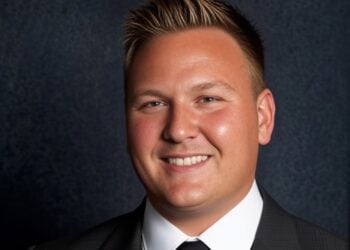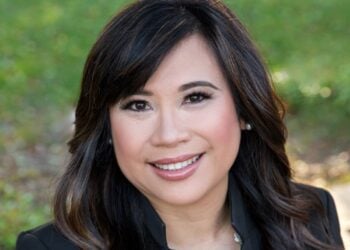CB Hutchins was a lawyer, entrepreneur and professional trustee who managed (and saved) several banks in the Chicago area during the Great Depression. His grandson, Charles W. Ranson, saw him as a great inspiration. “He was an astute investor who taught me the attributes of long-term investing,” Ranson said. In his grandfather’s twilight years, Ranson would read him the stock quotes from the newspaper.
“That experience crystallized my ambition to become a professional in asset management and fiduciary services,” Ranson said. Today, he’s built upon his industry know-how to serve as a trust and estate expert witness in fiduciary duty claims.
AALM: Tell us about your career in banking and your decision to found Integritas Advisors.
CWR: My journey began in 1983 when I joined Legg Mason, a Baltimore-based NYSE securities firm, advising individuals and families on the benefits of long-term value investing. By 1990, I joined Bank of America’s trust department and began my training in corporate fiduciary services. Later, I was recruited to J.P. Morgan Chase, where I spent 10 years developing clients, managing relationships, and leading teams of fiduciary administrators and investment managers responsible for $5.5 billion in trust AUM.
My professional experience has instilled in me a deep understanding of basic fiduciary duties, including loyalty, prudence, impartiality and disclosure when administering trusts and estates for beneficiaries. In 2001, I joined US Trust to lead its fiduciary relationship management team. Atlantic Trust recruited me to build out a private banking office in Florida in 2003.
In 2004, I founded Integritas Advisors, a SEC-registered investment advisor firm advising family offices and foundations on asset allocation, investment manager due diligence and consolidated performance reporting. I joined Tiger 21, a global peer-to-peer learning organization for ultra-high-net-worth individuals, to establish its presence in Miami and Palm Beach. My Tiger 21 experience broadened my understanding of the holistic nature of financial services and private wealth planning from the perspective of an entrepreneur investor.
AALM: You’ve served as an expert witness and litigation consultant for more than a decade. How did you first come to this work?
CWR: My litigation consulting and expert witness practice began with a phone call from a mentor, a former retired Wall Street executive, who had referred me to a defense attorney seeking an expert in private banking/corporate fiduciary services. The case was a mortgage commercial foreclosure with a cross-claim by the defendant for breach of fiduciary duty. The defendant had a mortgage with the plaintiff national bank, which also agreed to provide fiduciary advice to the defendant for a fee.
After reviewing the documents and fact witness testimony, I wrote an expert report and testified at a deposition. In my opinion, the bank breached its fiduciary duty by failing to adhere to the requisite standard of care in its dealings with the client who had named the bank trustee on several trusts and paid an annual fee for fiduciary advice. The bank officer in charge of the relationship engaged in conflicted transactions that he benefited from personally at the expense of the client.
On the day of my trial testimony, the parties settled the case. Today, 14 years later, I have completed over 50 case assignments for plaintiff and defendant counsel in breach of fiduciary duty claims in state and federal courts across the nation.
AALM: How would you describe your approach to your work as an expert witness? How do you think this separates you from other experts?
CWR: Authenticity, consistency and authority, along with a facile understanding of basic fiduciary principles, are the expertise and values I bring to my clients. Cases range from trust accounting objection proceedings, failure to administer trusts in compliance with the prudent investor standard, disputes regarding trustee discretionary distributions to beneficiaries based on ascertainable standards, and disputes over trustee reasonable compensation, among many other claims I have addressed as an expert witness. Each case has unique facts and circumstances that must be considered when forming an opinion regarding the breach claims.
AALM: As both a plaintiff and defense expert, what factors do you consider before taking on a case?
CWR: Potential case assignments begin with an attorney contacting me, often through a client attorney referral. After a thorough discussion of the claims of the case, the attorney’s theory of the case, and a review of facts and circumstances, I determine whether I’m a good fit or not as a testifying expert or whether I would better assist the attorney as a consultant regarding the appropriate standard of care to be applied to the case.
An expert witness is not an advocate. I approach each assignment with an open mind, considering the claims made by the plaintiff and the responses by the defense. I then review the documents in evidence and the testimony of the fact witnesses, and begin to form an opinion regarding the breach of fiduciary duty claims. To test my opinions, I rely on my education, training and experience in corporate fiduciary services as well as the Third Restatement of Trusts and its emphasis on fundamental principles of loyalty, prudence, impartiality and disclosure.
Ultimately, testifying before the trier of fact regarding the opinions one expresses in the case is the job. Being able to communicate clearly and concisely with the judge, jury or arbitration panel is what my clients require, and it is the focus of my work. Ultimately, my effectiveness as a testifying expert depends on my facile understanding of the applicable standard of care applied to the facts and circumstances of the case, as well as my ability to express that opinion with concise clarity.
Past clients have included individual and corporate trustees, current and remainder beneficiaries, ultra-high-net-worth investors, and investment advisors. The vast majority of cases in which I’ve served as an expert witness settle before trial. However, I have served in cases where the award has reached as high as $875 million.
AALM: Looking ahead, what trend do you believe will continue to appear in litigation surrounding trusts and estates moving forward?
CWR: As intergenerational wealth transfer continues at a rapid pace, I am prepared to assist attorneys in the evolving area of trust and estate litigation.
For more information, visit charleswranson.com.








